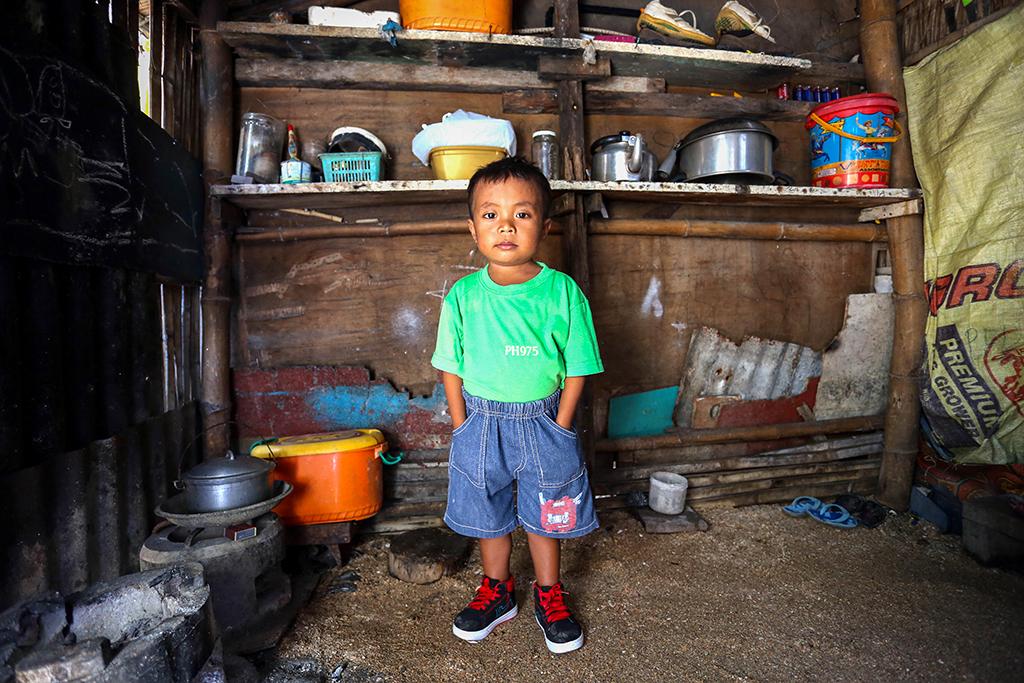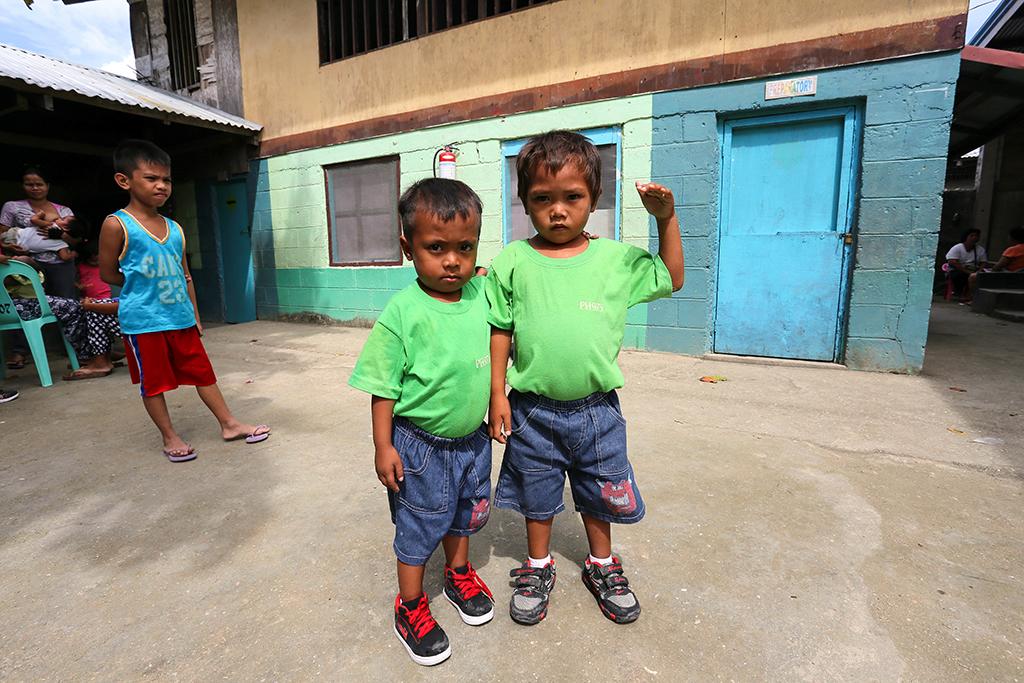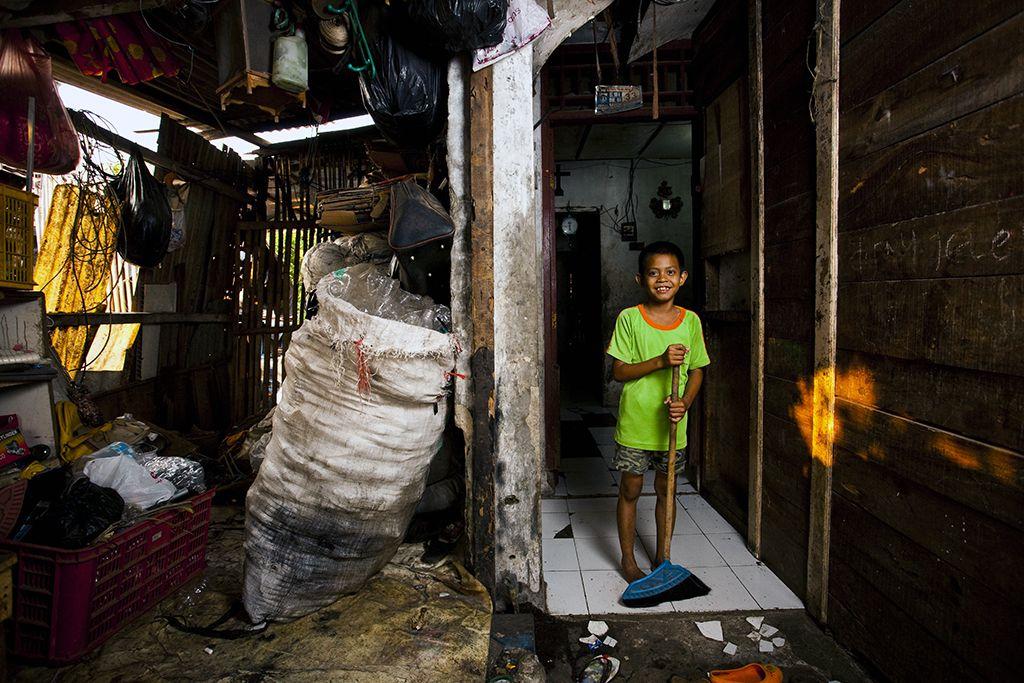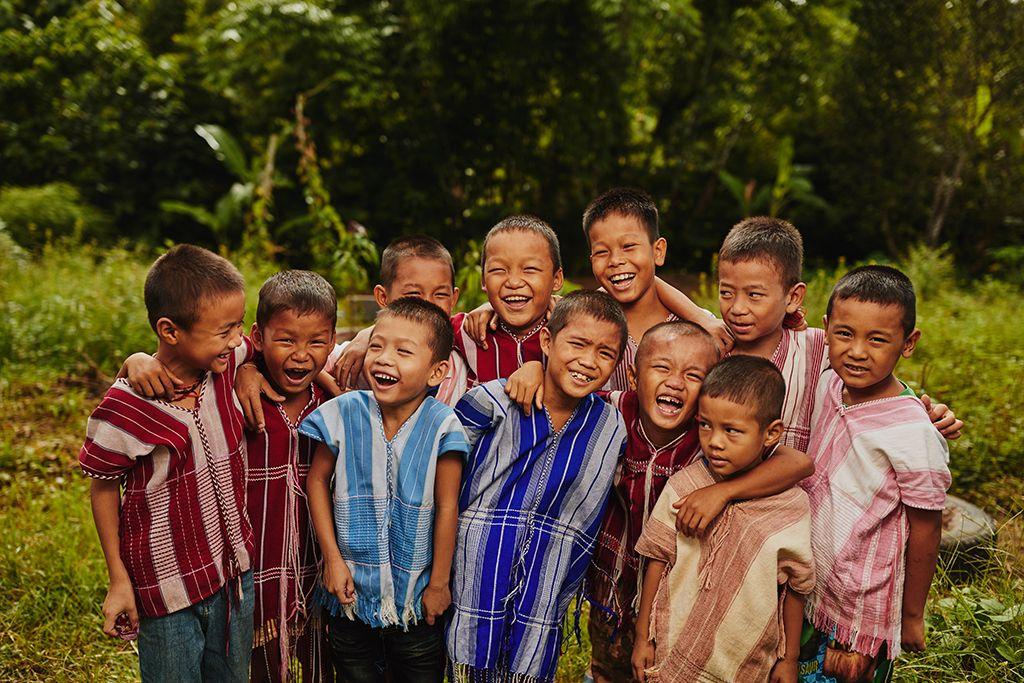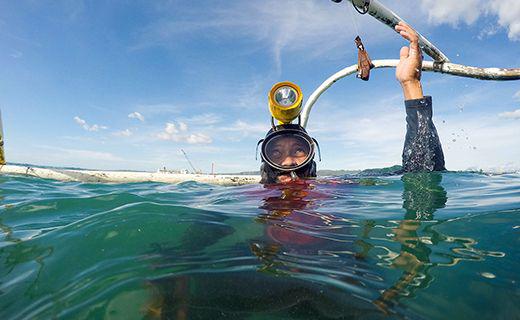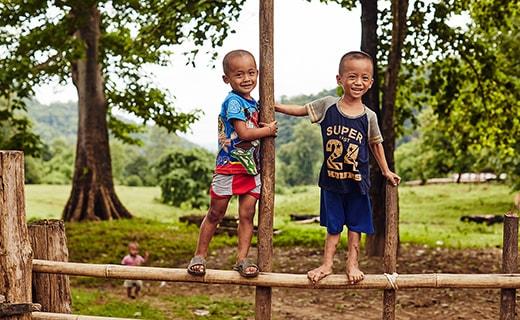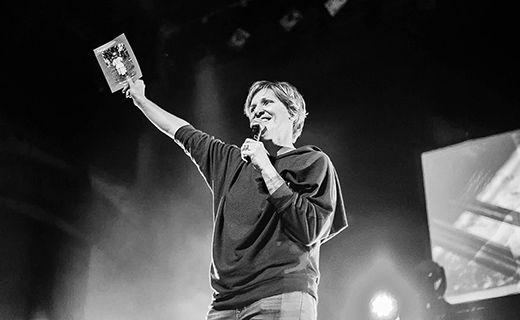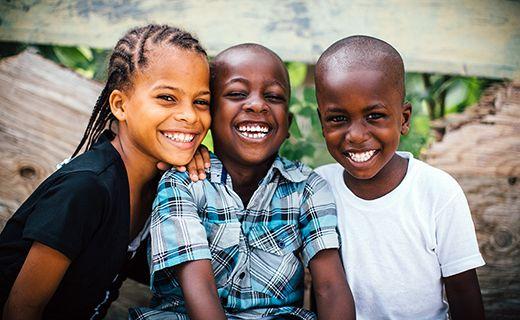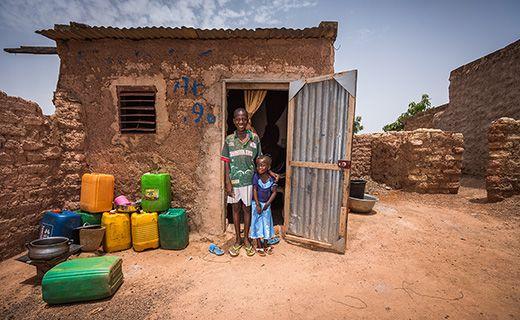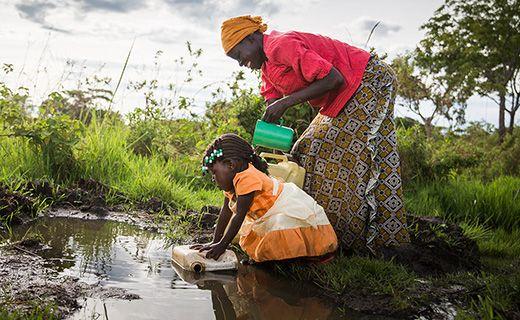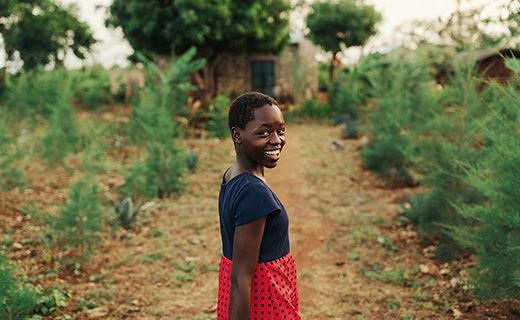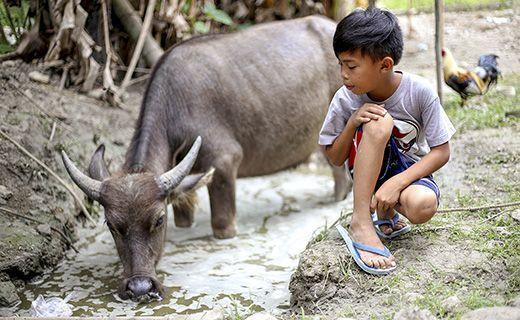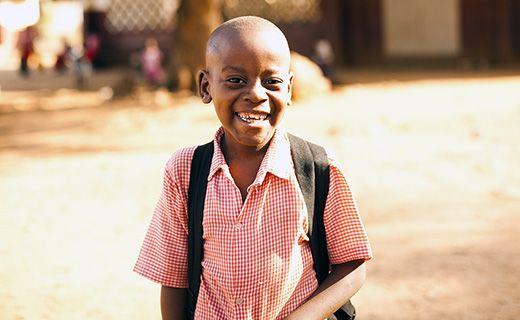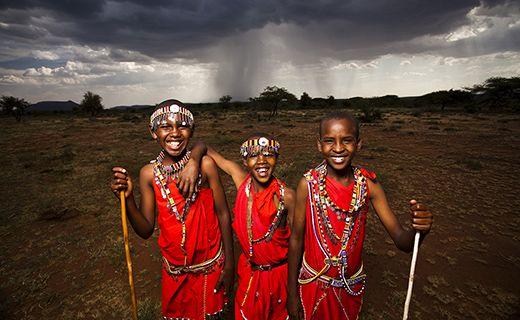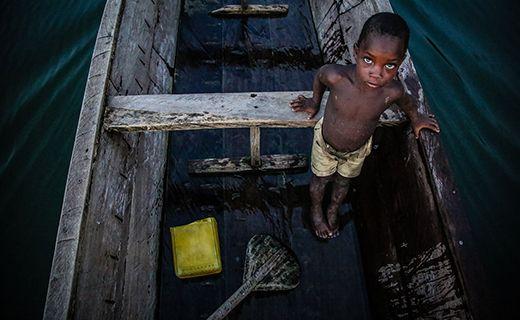Qu'est-ce que la pauvreté? Les définitions de la pauvreté
La pauvreté est beaucoup plus complexe qu'un nombre. La pauvreté a un visage et un nom.
11 juin 2019
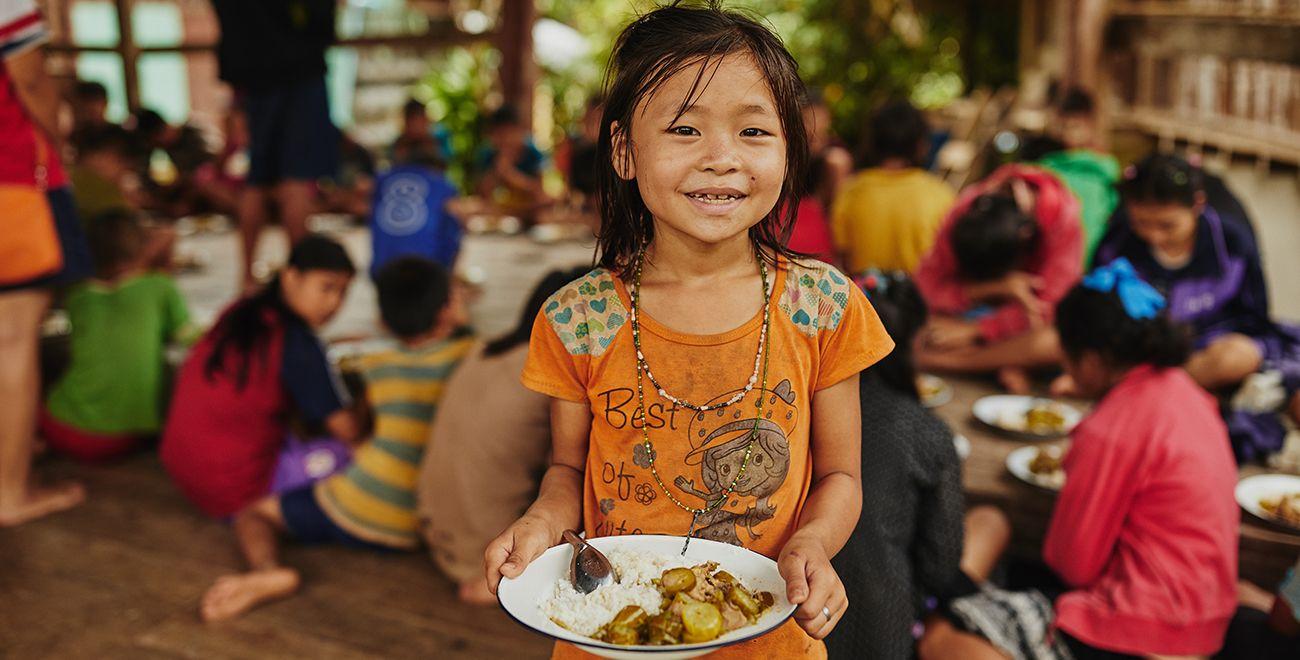
Qu'est-ce que la pauvreté?
Quand on pense à la pauvreté, on pense généralement à l’économie. En réalité, la pauvreté a un visage. C'est une fille obligée de se marier parce que sa famille ne peut pas la soutenir. Une maman qui ne peut pas acheter de médicaments pour sauver la vie de son bébé. Un garçon envoyé travailler sur le tas d'ordures plutôt que dans la salle de classe.
Quelle est la définition officielle de la pauvreté?
Selon la définition de la Banque mondiale relative à la pauvreté, " une personne est considérée comme pauvre si son niveau de revenu est inférieur au minimum nécessaire pour subvenir à ses besoins essentiels." Il définit ce seuil minimal, ou seuil de pauvreté international, comme vivant avec moins de 1,90 dollar. un jour.
Faits de pauvreté
- Un peu moins de 385 millions d'enfants vivent dans l'extrême pauvreté dans le monde.
- Environ 15 000 enfants meurent chaque jour avant de célébrer leur cinquième anniversaire, principalement de causes pouvant être prévenues.
- Toutes les 20 secondes, une mère perd un enfant d'une maladie qui aurait pu être prévenue par un vaccin.
- En moyenne, les enfants nés dans les 20% des ménages les plus pauvres risquent presque deux fois plus de mourir avant l'âge de 5 ans que ceux nés dans les 20% les plus riches.
- Chaque année, environ 100 millions de personnes sont forcées de vivre dans la pauvreté en raison de dépenses liées à la santé.
- About 800 million people still live in extreme poverty and suffer from hunger.
Children are more than twice as likely to live in extreme poverty than adults. In developing countries, an estimated 19.5 percent of children live on less than $1.90 a day, compared to 9.2 percent of adults. - At current trends, nine out of 10 of the world’s children living in extreme poverty will live in sub-Saharan Africa in 2030.
What’s the difference between absolute poverty and relative poverty?
- Relative poverty considers your location and what it means to be poor in a particular society. It measures if your income falls below the minimum amount needed for you to maintain the average standard of living in the society you live in.
- On the other hand, the World Bank defines poverty in absolute terms. Rather than measuring poverty against the rest of the population, poverty is measured against a fixed standard of living. In October 2015 the World Bank set a new global poverty line at $1.90 a day.
While both definitions are valuable, they view poverty through a single lens of income and consumption. In reality, poverty is far more complex and involves other social, cultural and political aspects.
Do age and gender impact poverty?
For certain members of society, mainly women and children, they may already lack political, social or economic rights meaning poverty places a double burden on them, making them even more vulnerable. Globally, 1 in 5 girls are married before age 18, ending their chances of an education.
What does poverty mean for children?
- We're right with you in thinking it's a huge injustice that more than half of the estimated 766 million people who live in extreme poverty are children.
- Children are left most vulnerable to the effects of poverty: from the moment their life begins, a child’s future is shaped by their environment.
- Poverty can rob children of their basic rights. There's significant evidence to show that poverty can have devastating short and long-term effects on a child’s ability to learn, build relationships and make a positive transition to adult life.
- According to UNICEF, “The consequences of inadequate nutrition, lack of early stimulation and learning, and exposure to stress last a lifetime. ” If they have families of their own, there is a high probability that poverty will be passed down to future generations.
What is a poverty line and how is it calculated?
If a person’s income is ‘below the poverty line’ in their country, it means they don’t have enough money to meet their minimum needs for nutrition, clothing and shelter. Poverty lines are different in each country, higher in richer countries and lower in poorer countries.
What is the international poverty line?
Each country has a different poverty line. To make easier comparisons, the World Bank calculated a global poverty line of $1.90 per day in 2011, using the poverty lines of the world’s 15 poorest countries in 2005 and 2015.
What is the poverty line in the UK?
The Joseph Rowntree Foundationdefines the poverty line in the UK as households earning less than 60% of the median income, which was £425 a week after housing costs in 2016-2017 (£22,100 a year).
Has progress been made in the fight against poverty?
There have been great successes in the fight against poverty in the past 20 years:
- The Make Poverty Historycampaign in 2005 united global leaders to help.
- Extreme poverty has declined by more than half, from 1.9 billion people in 1990 to 836 million in 2015.
- The global poverty rate is now lower than it has ever been in recorded history.
- Many more girls are now in school compared to 15 years ago. The developing regions as a whole achieved the Millennium Development Goal target to eliminate gender disparity in primary, secondary and tertiary education.
But there's still a long way to go:
- Globally, almost 385 million children are still living in extreme poverty.
- Despite the tremendous progress, poverty rates remain stubbornly high in low-income countries and those affected by conflict and political upheaval.
- In the 25 years from 1990 to 2015, the extreme poverty rate dropped an average of a percentage point per year – from nearly 36% to 10%. But the rate dropped only one percentage point in the two years from 2013 to 2015.
What are the sustainable development goals?
The Sustainable Development Goals were adopted by world leaders in September 2015 at an historic UN summit. The SDGs build on the success of the Millennium Development Goals, and aim to go further in ending poverty while protecting the planet for the future.
Each goal must be achieved by 2030.
- No poverty
- Zero hunger
- Good health and wellbeing
- Quality education
- Gender equality
- Clean water and sanitation
- Affordable and clean energy
- Decent work and economic growth
- Industry, innovation and infrastructure
- Reduced inequalities
- Sustainable cities and communities
- Responsible production and consumption
- Climate action
- Life below water
- Life on land
- Peace, justice and strong institutions
- Partnerships for the goals
Could you survive living in extreme poverty? Lance’s story
Could you imagine feeding your family of seven on £4.50 a day? What would you do on the days there was no money for food? For Lance and his family, this is their daily reality of living below the poverty line.
Lance’s father, a fisherman, paddles to sea in a tiny canoe very early every morning to fish for 10 hours, but he must fish close to the shore since his boat is not motorised. “It’s too risky for him to go further out,” Lance’s mum, Joan, says. “He doesn’t catch many big fish but I do my best to sell them in the afternoon so we have money to buy food and send our older children to school.”
The most money Lance’s hard-working parents can make is 300 Philippine Pesos per day (£4.50), but sometimes they earn nothing. “On such days, we just eat the fish before it goes rotten as we don’t have electricity or a cooler to store it,” says Joan.
When families are caught in crippling poverty like this, growing children miss out on important nutrients, leading to malnutrition and stunted growth.
For years, Lance was too weak to lift himself up and walk. Lance was eight years old at the time, but he was the size of a four-year-old.
This changed for Lance when he was registered at a Compassion project and found a child sponsor. The project staff helped Lance to get immediate medical attention where he was diagnosed with acute malnutrition.
After a consultation with specialists, Lance was given a meal and vitamin schedule and the project staff went to extraordinary lengths to ensure the young boy remained on his meal schedule.
Collins’ story
Collins and his grandmother, Nachi, live in the Solai District in northwest Kenya. Together, they’ve endured unimaginable grief and hardship because of poverty. Despite being in her sixties Nachi still does intense manual labour to provide for Collins. But back pain, swollen hands and feet don’t support her long enough to earn a decent wage.
“We face a lot of hardship because we don’t always have enough to eat. But then I remembered Compassion projects help children.”
“Before I took Collins to the project, all I felt was despair. I was sure we would both die of starvation. But Because of Compassion I can see he will have a brighter future. If I was to meet his sponsor one day, I wouldn’t have the words to express [how I feel]. But if she looked into my heart, the sponsor would see only joy,” says Nachi.
Can poverty be stopped?
The great news is extreme poverty has declined by more than half, from 1.9 billion people in 1990 to 836 million in 2015. That’s almost half in 25 years meaning eradicating extreme poverty is within our reach. When we take the attitude that poverty will always exist we’re less likely to take action.
But by taking a stand against poverty together we can make a difference.
Compassion's response to global poverty
Poverty can often feel overwhelming. When we hear that nearly 400 million children still live in extreme poverty we can wonder what difference we can really make.
That's why we're offering you the chance to sponsor a child - a highly strategic way of ending poverty, one child at a time. You can meets the real-life needs of a child living in poverty by tackling the root causes of poverty that hold them back.
Compassion connects one child born into the vulnerability of poverty with one sponsor, like you. You can give a child the opportunities they deserve by sending them to school, providing them with nutritious meals and protecting their health with regular medical check-ups.
Sources: UNICEF, Ending Extreme Poverty, UNICEF, The State of The World's Children, Millennium Development Goals Report
PRAY FOR CHILDREN IN POVERTY
Sign up to pray for children with urgent needs and the wider work of Compassion.
We'll email approximately once a fortnight and you can unsubscribe from these emails at any time.
MORE STORIES FOR YOU
‘And whoever welcomes one such child in my name welcomes me.’
Matthew 18:5 (NIV)
‘Speak up for those who cannot speak for themselves, for the rights of all who are destitute. Speak up and judge fairly; defend the rights of the poor and needy.’
Proverbs 31:8-9 (NIV)
‘Start children off on the way they should go, and even when they are old they will not turn from it.’
Proverbs 22:6 (NIV)
‘And whoever welcomes one such child in my name welcomes me.’
Matthew 18:5 (NIV)
‘Speak up for those who cannot speak for themselves, for the rights of all who are destitute. Speak up and judge fairly; defend the rights of the poor and needy.’
Proverbs 31:8-9 (NIV)
- 1
- 2
- 3
We're passionate about protecting and empowering every child left vulnerable by poverty. Our world-class one-to-one model means we can't do it without you.
Independent research shows that if you sponsor a child with Compassion, they are more likely to be employed and be a community leader when they grow up.
We'll email approximately once a fortnight and you can unsubscribe at any time.
Nous contacter | Médias | Politiques | Avis de confidentialité et de cookies | Déclaration d'esclavage moderne | FAQ
Informations et adresse enregistrées: Compassion UK Christian Child Development, organisme de bienfaisance enregistré en Angleterre et au pays de Galles (1077216) et en Écosse (SC045059). Une société à responsabilité limitée par garantie, enregistrée en Angleterre et au Pays de Galles sous le numéro d'entreprise 03719092. Adresse enregistrée: Compassion House, Barley Way, Fleet, Hampshire, GU51 2UT. Copyright © 2005-2019 Compassion UK


